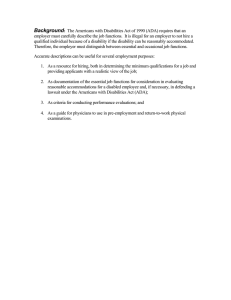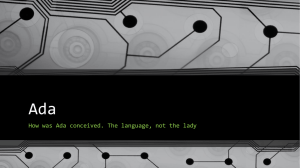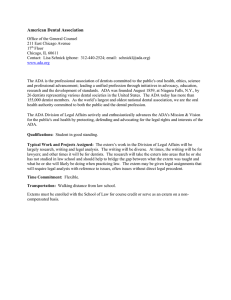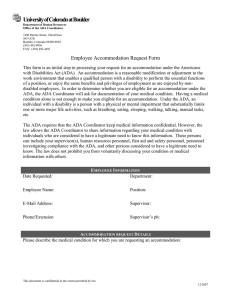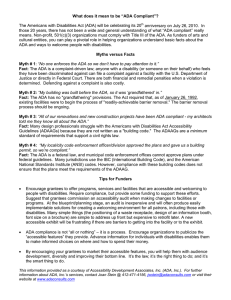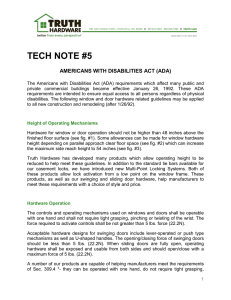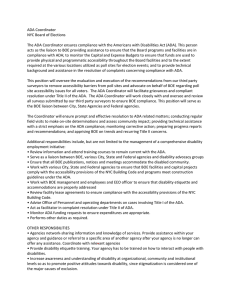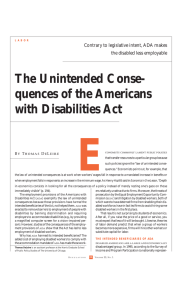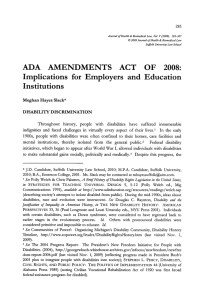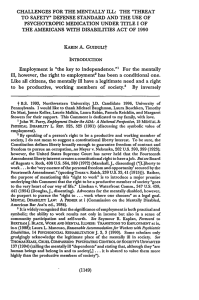MEMO
advertisement
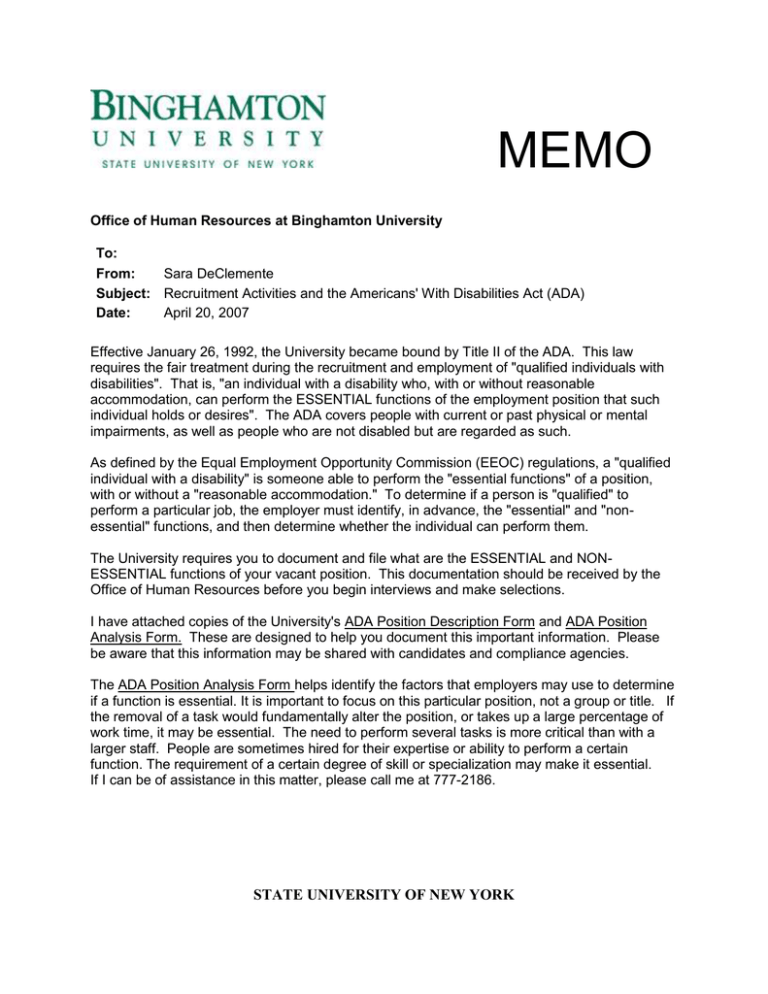
MEMO Office of Human Resources at Binghamton University To: From: Sara DeClemente Subject: Recruitment Activities and the Americans' With Disabilities Act (ADA) Date: April 20, 2007 Effective January 26, 1992, the University became bound by Title II of the ADA. This law requires the fair treatment during the recruitment and employment of "qualified individuals with disabilities". That is, "an individual with a disability who, with or without reasonable accommodation, can perform the ESSENTIAL functions of the employment position that such individual holds or desires". The ADA covers people with current or past physical or mental impairments, as well as people who are not disabled but are regarded as such. As defined by the Equal Employment Opportunity Commission (EEOC) regulations, a "qualified individual with a disability" is someone able to perform the "essential functions" of a position, with or without a "reasonable accommodation." To determine if a person is "qualified" to perform a particular job, the employer must identify, in advance, the "essential" and "nonessential" functions, and then determine whether the individual can perform them. The University requires you to document and file what are the ESSENTIAL and NONESSENTIAL functions of your vacant position. This documentation should be received by the Office of Human Resources before you begin interviews and make selections. I have attached copies of the University's ADA Position Description Form and ADA Position Analysis Form. These are designed to help you document this important information. Please be aware that this information may be shared with candidates and compliance agencies. The ADA Position Analysis Form helps identify the factors that employers may use to determine if a function is essential. It is important to focus on this particular position, not a group or title. If the removal of a task would fundamentally alter the position, or takes up a large percentage of work time, it may be essential. The need to perform several tasks is more critical than with a larger staff. People are sometimes hired for their expertise or ability to perform a certain function. The requirement of a certain degree of skill or specialization may make it essential. If I can be of assistance in this matter, please call me at 777-2186. STATE UNIVERSITY OF NEW YORK

